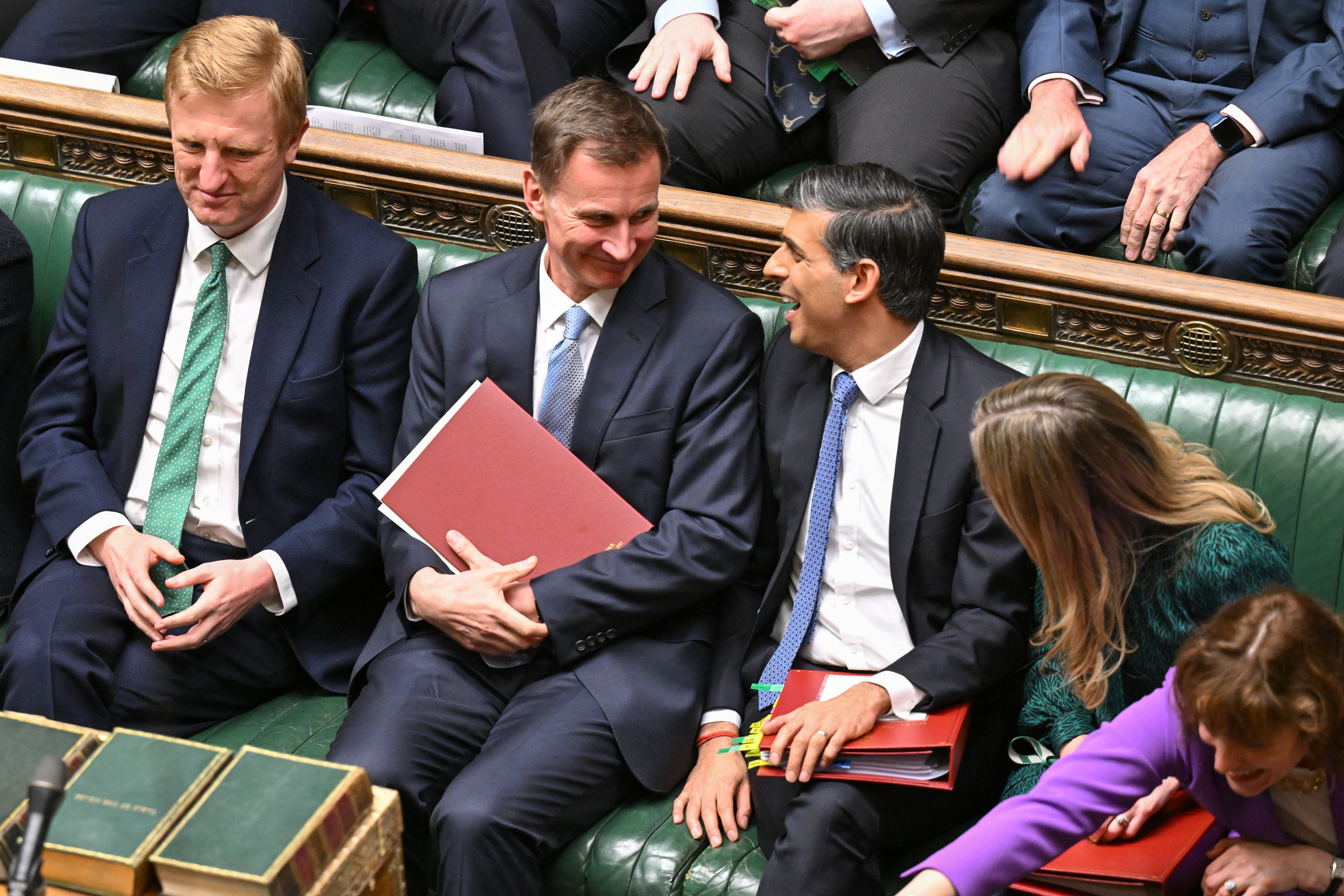Rishi Sunak: I’ll slash benefits to fund plan to scrap national insurance
Prime minister sets out his intention to consult on new plans to reduce working-age benefits ‘to make sure that we can sustainably keep cutting taxes’
Your support helps us to tell the story
From reproductive rights to climate change to Big Tech, The Independent is on the ground when the story is developing. Whether it's investigating the financials of Elon Musk's pro-Trump PAC or producing our latest documentary, 'The A Word', which shines a light on the American women fighting for reproductive rights, we know how important it is to parse out the facts from the messaging.
At such a critical moment in US history, we need reporters on the ground. Your donation allows us to keep sending journalists to speak to both sides of the story.
The Independent is trusted by Americans across the entire political spectrum. And unlike many other quality news outlets, we choose not to lock Americans out of our reporting and analysis with paywalls. We believe quality journalism should be available to everyone, paid for by those who can afford it.
Your support makes all the difference.Cuts to benefits could be used to fund the abolition of national insurance contributions (NICs) for workers by the end of the next parliament, prime minister Rishi Sunak has suggested in a pitch to voters ahead of the general election.
Mr Sunak, whose party trails Labour by a double-digit margin in most opinion polls, insisted that “significant progress” could be made towards eliminating NICs during the next parliament after the idea was floated by the chancellor in the spring Budget.
In a Sunday Times interview, Mr Sunak set out his intention to consult on new plans to reduce working-age benefits “to make sure that we can sustainably keep cutting taxes”.
Jeremy Hunt used his Budget to set out a 2p cut in national insurance from April with a vague promise to eventually deliver a simpler tax system by eventually getting rid of it altogether.
Mr Sunak stressed his commitment to ending the “unnecessarily complex” system of having both income tax and national insurance contributions (NICs).
“All that money ultimately goes into the same pot to fund public services. So … our long-term ambition is to end that unfairness, to keep cutting NICs until it’s gone, because that is the best way to reward hard work, simplify the tax system, and build the kind of society that I think is right,” he said.
The plan to end the double taxation of work by scrapping national insurance was attacked as an unfunded promise by Labour, which pointed out it would cost the Exchequer around £46bn.

The head of the respected independent Institute for Fiscal Studies think tank, Paul Johnson, said the pledge was “not worth the paper it’s written on unless accompanied by some sense of how it will be funded”.
But Mr Sunak said: “We’ve cut NICs by a third in two events over six months. So that demonstrates we are delivering and we can go further, though it’s important that we stick to the plan and then we can make significant progress towards that goal in the next parliament.”
A key to funding this pledge could be cutting the welfare bill, which is set to rise from £261.5bn in 2022-23 to £360.1 billion in 2028-29 according to the Office for Budget Responsibility.
Mr Sunak said: “We now have almost 2.5 million working-age people who have been signed off as unfit to work or even look for work or think about working and I don’t think that’s right.
“We now sign off three times as many people to be out of work than we did a decade ago. That just doesn’t strike me as a system that’s working properly.”
The 2p cut in national insurance, which follows a similar measure in November, appears to have done little to revive Tory election hopes.
An Opinium poll put Labour 16 points ahead, with Sir Keir Starmer’s party on 41 per cent and the Tories on 25 per cent.

Join our commenting forum
Join thought-provoking conversations, follow other Independent readers and see their replies
Comments